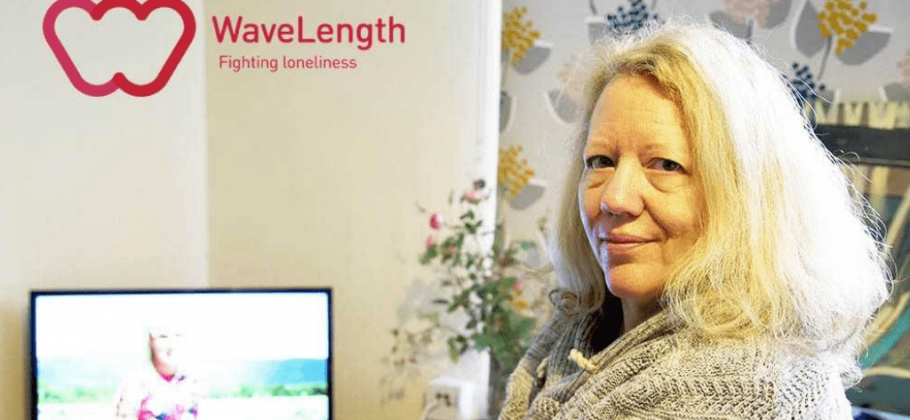In their 80th year, a new report by the national charity WaveLength reveals that people felt less lonely after receiving a radio, television, or tablet. Using survey data collected from over 180 people over 2 years, this research by the University of York shows that individuals rated their own health more positively after receiving and using their new technology. Study participants were on average 44 years old. Over 50% had been homeless and experienced poor mental health.
Accelerated by the often-negative and insensitive discussions surrounding technology and loneliness, this new report broadens understanding of this, as yet, little-researched area. The report, by Professor Martin Webber, Director of York’s International Centre for Mental Health Social Research, shows that technology can have a positive influence on the life of someone who is lonely. The benefits of everyday technology are heightened for people who are at the greatest risk of suffering from loneliness. This includes people who are in a bad financial situation and experiencing poor physical and mental health. The study also shows that loneliness did not vary by gender, region or age in the sample.
This research, funded by the ESRC Impact Acceleration Grant, builds on an earlier study of interviews with a cross-section of WaveLength’s beneficiaries. Having access to technology alleviated loneliness and other associated negative emotions, while also facilitating social connections. Technology provided practical benefits, such as links to new hobbies and employment opportunities.
WaveLength’s CEO Tim Leech said:
”As one of the oldest loneliness charities, it was vital for us to evaluate the impact of our work, especially in light of the debates over technology. Our latest report shows that everyday media technology has a real role to play in helping people to feel less lonely. The research shows a statistically significant relationship between technology usage, a reduction in loneliness, and an increase in self-rated health. The results of this study should lead to a greater recognition of the valuable role technology can play in fighting loneliness, alongside other forms of support.”
Clare, who is living in Kilburn, recently received a television from WaveLength after she left prison. Experiencing several health issues and disabilities means that she is now often housebound. Commenting on the difference her television has made, she explained:
“I have found the TV to be invaluable as it is a real companion to me when I am bedbound and stops me from feeling lonely. I really enjoy tuning into my favourite programmes for entertainment and learning. The TV has made such a positive difference to my life.”
Alongside processing individual applications, the charity also gives technology to organisations. One initiative WaveLength has helped is the Home for Good Club, run by the homeless charity, The Passage. The club helps previously-homeless people transition to independent living. Using tablets given by WaveLength during the club, one client reflected:
“When I first came to the Home for Good Club, I was living like a hermit. I hardly spoke to anyone. Conor gave me a tablet to use and this gave me access back to the “real world” and the opportunity to talk to, and make, friends. Without the tablet I would probably still be suffering from severe depression.”
WaveLength’s report calls for more attention to be given to the benefits everyday technology can bring to some of the loneliest people. Not everyone can afford to buy the everyday technology which many of us take for granted. It is just as important for funding to cover the purchase of equipment, alongside training. The report calls for free access to a minimum standard of broadband in order to connect greater numbers of people via smart televisions and tablet computers. More detailed findings from the study will be published in due course.
To download the report click here









